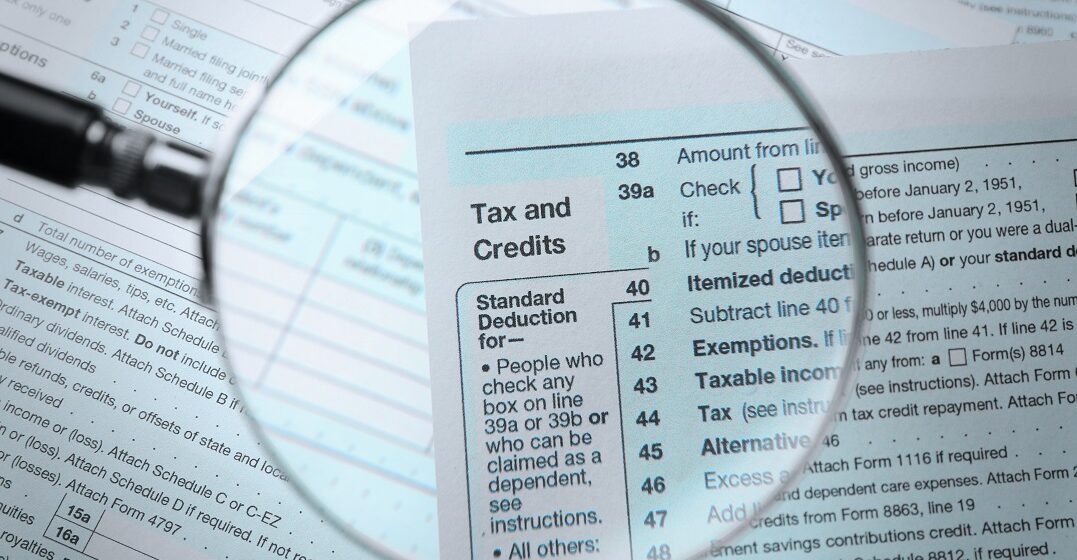by Laura Jones
Published on August 9, 2023
Like cherry blossoms in spring and the vibrant spectacle of golden foliage in the fall, tax season descends upon us every year, albeit with less enchantment. Filing taxes abroad can be complex, and this is certainly true for immigrants and expats living in Switzerland. Navigating the Swiss tax system can feel a little like setting out on an alpine expedition: challenging at the start, followed by a sense of victory at the finish.
Here are eight things to know about filing your tax declaration in Switzerland.
Some of you can stop reading this article very soon (or continue reading for fun with a little Schadenfreude).
For certain categories of workers, tax is deducted at source in Switzerland. In other words, these workers aren’t required to file a tax return. This is true for foreign workers who are residents in Switzerland and do not hold a C permit, and people who are residents abroad who receive income from an economic activity carried out in Switzerland.
However, if you do hold a C permit, are married to a Swiss citizen or to someone who holds a C permit or belongs to most other categories, you need to file a tax return.
You are treated as a resident for tax purposes in Switzerland if you stay in the country for 30 days for business or work purposes or 90 days without carrying out economic activities.
Non-residents are taxed only on their Swiss-sourced income.
There are three different types of taxes in Switzerland, but you only file one tax declaration with your local canton. Taxation rates depend on your income and where you live. Federal taxes amount to no more than 11.5% of your income; cantonal and municipal rates vary from one place to another, pushing up your tax bill.
In Zurich, for example, taxpayers shell out around 40% of their income, including Switzerland’s federal income tax. In the canton of Zug, taxes add up to just over 22%. So, if you’re looking to save money on taxes, choose your canton carefully.
Ok, here we go. You’re a tax resident in Switzerland and you’re ready to fill out your tax return. The Swiss authorities don’t sleep on this, and at the end of every financial year, you’ll be asked to fill out your tax return. It’s time to gather your documents.
You will need some of the following:
If you want to make deductions (and why wouldn’t you?), you’ll need a few more bits of paper, which may include the following:
If you’re married in Switzerland, you typically file with your spouse and your income is taxed jointly. Most of the information about filling out tax forms in Switzerland is in French and German; if you don’t speak one of Switzerland’s national languages, you may need to enlist some help to complete your return.
Once you’ve gathered all of your documents, the actual filing of your tax return in Switzerland is simple. You can submit your tax declaration in Switzerland online in all of the 26 cantons.
The deadline for submission is usually 30 days from receiving the form, though you can request an extension if you need one. The usual deadline is toward the end of March, though this varies by canton.
After you’ve filed, it’s a waiting game. You’ll receive two tax bills: one from the federal government in Bern and the other from your canton, covering cantonal and municipal taxes. You can pay each in one lump sum or in three installments.
It’s very likely that the first tax bill you receive will change. It can go up or down by CHF 20,000 after the tax authorities complete the calculations for the year. If you’re lucky, it’ll go down and you’ll receive a rebate plus the compounded interest.
On the other hand, if you know that your initial bill looks a bit low, you can overpay in the first place and hedge your bets. This will be taken into account when adjustments are made.
While a celebration isn’t an official part of the process of filing your tax declaration in Switzerland, you’ll deserve a little treat. How about a haul of Swiss chocolate and a hike in some of Switzerland’s spectacular scenery?
Filing your tax declaration in Switzerland takes some fortitude and a whole lot of organization. If you’ve never paid taxes in Switzerland before, it can be tricky to estimate your eventual income tax bill due to the different rates across the cantons. In any case, there’s no getting out of it. Filing your taxes is a legal obligation that keeps you in the Swiss authorities’ good graces. So, take a deep breath and a bite of chocolate, and get filing!
